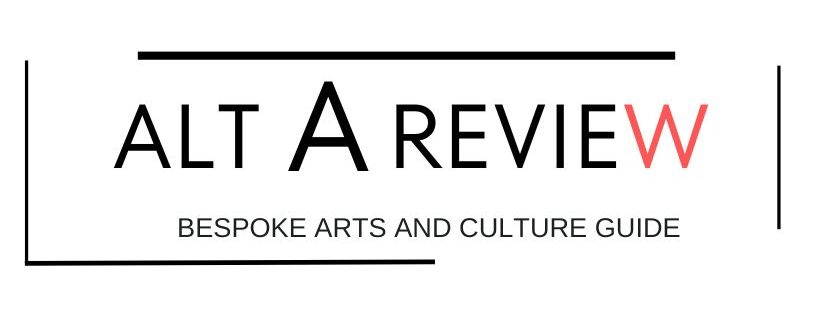“I was attracted primarily by the humour of the script. It’s genuinely one of the funniest plays I’ve read. And it’s very honest. About the ridiculousness of the ideas the West holds about the rest of the world and how false those ideas are” Simpson-Pike
Alt caught up with Anthony for a quick chat, the theatre-maker and dramaturg’s directing credits include Dreamless Sleep (Bunker), Loyalty and Dissent (Tamasha Theatre/Rich Mix/ National Archives), Welcome to England (Young Court, Royal Court), Detox (Artistic Directors of the Future), Pandora (Peckham Pelican/Zedel/New River Studios), Coma (Southwark Playhouse), Something to Say (St James Theatre), Plunder (Fresh Direction, Young Vic), Camp (Etcetera Theatre/Bussey Building), One for the Road and New World Order (Site- specific).
What is the story behind The Ridiculous Darkness?
Act 1 is the story of a Somali man who is on trial in Hamburg, Germany for piracy. This is based on a real trial that took place in 2010. Then the story subverts the basic structure of Heart of Darkness and Apocalypse Now. Two white male soldiers go down the river to find another white male soldier who has been driven mad by “the wilderness”. And things get very, very weird along the way.
What attracted you to the script?
I was attracted primarily by the humour of the script. It’s genuinely one of the funniest plays I’ve read. And it’s very honest. About the ridiculousness of the ideas the West holds about the rest of the world and how false those ideas are. But it’s also really subversive in sending up two of the most revered works by white male authors about previously colonised countries. It really takes another look at Heart of Darkness and Apocalypse Now and makes you question the representations of Congolese and Vietnamese people but also how the West talks about its relationship with the rest of the world. Who gets to represent themselves? And what do people really know about the world?
What made you decide to work in theatre?
Stories are political because they form our understanding of the world. By choosing to tell one story, we are choosing not to tell another. By representing one group more than any other, we are leaving people unable to see themselves reflected on stage. Art is activism, whether we like it or not. Once we know that, we need to start asking hard questions of others and ourselves. What is the purpose of theatre? Who do we make work for? I make theatre to complicate the narratives we have about the world, each other and ourselves. For me theatre is a really communal event. It feels like a rare opportunity to come together as a community and ask questions of ourselves in a hopefully really engaging way. That’s really exciting.
What are the main themes in the story?
The Ridiculous Darkness is a dark comedy that subverts the narratives the West has to tell itself in order to understand itself as civilised in opposition to a supposedly uncivilised ‘other’. Our production is about resisting those narratives and asking why the West imagines itself in the way it does. The play is about the politics of imagining people and places you don’t know, war, gender, colonialism and talking parrots. To name a very select few. It’s very surreal and very funny.
How do you think the conversations we are having about identity will shape the future? And how does casting four black femmes fit into this?
I think we’re understanding that identity is really complex. What I mean is that it is a process of construction that society takes part in. People have always been threatened by identities different from their own and identity is also a source of power in many different ways, wielded to oppress and to empower. One of the things we’re doing in this production is questioning what identities like whiteness are based on. To what extent is whiteness just another story set up to privilege some people over others? How can we see whiteness for what it is- a construction and a set of myths that have real consequences? Our casting, by putting a distance between the performers and the characters, allows these questions to be visible. It allows whiteness to be visible rather than a “neutral” background noise. Once it’s visible it can be deconstructed. At the same time, Heart of Darkness and Apocalypse Now don’t give voices to the Congolese and Vietnamese inhabitants of their locations. We’re asking what it means to take back the narrative and blow it up.
What was the first piece of work that you directed and what have you learned along the way to get to this point?
Two Harold Pinter shorts, One for the Road and New World Order. I’ve learned A LOT since then. But being a director is a continual process of learning. Most importantly I’ve learned to be as prepared as possible so that you can take bold risks.
Where do you call home?
I call London home. I just moved to East London, but I probably still prefer South.
What in your opinion makes a good writer?
Someone who makes us understand the world or ourselves differently. And who isn’t afraid to be brave.
What, Where and When
Stage Play called: The Ridiculous Darkness When: 27 February – 23 March
What: Critically acclaimed dark comedy The Ridiculous Darkness, by award winning German playwright Wolfram Lotz, is a surreal, hilarious and powerful response to Heart of Darkness and Apocalypse Now, that invites us to rethink colonial narratives, confront our ideas of each other and question what we imagine is in the darkness.
Four black femmes. Three revered White Male Writers. Two classic works. A radical deconstruction.
BOOK TICKETS
https://www.gatetheatre.co.uk/events/all-productions/the_ridiculous_darkness











